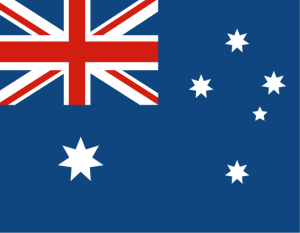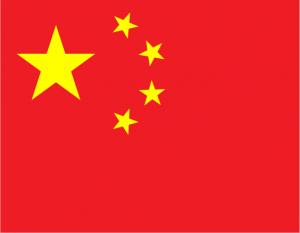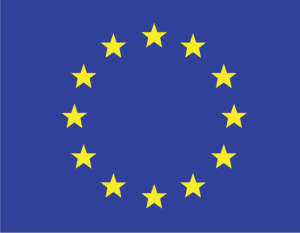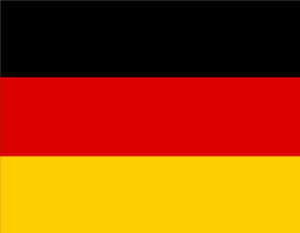How Poland's stable economy lets businesses thrive
Poland’s resilient economy and pro-business policies make it an ideal destination for businesses looking to grow.

Imagine an economy that not only survived a global pandemic but thrived, reaching new heights in growth and innovation. That’s Poland. With a 6.8% GDP growth rate in 2021 and record-high foreign direct investment, Poland’s economic resilience is a success story.
This isn’t just about numbers though – it shows Poland’s vision and adaptability. Not so long ago, it was a struggling post-communist state. Now, it’s the sixth-largest economy in the European Union, with a GDP of US $688 billion. And it didn’t get there by chance. Rather, through the smart use of EU funds and a focus on entrepreneurship and innovation, it’s rebranded itself as a hub for new businesses.
Thriving industries and innovation
Poland’s industrial success is both diverse and dynamic. Take the country’s manufacturing sector, particularly in automotive and aerospace. Global giants like Volkswagen and Lockheed Martin have set up shop here, providing jobs and developing the local expertise in tech and manufacturing.
Thanks to its business incentives, such as tax exemptions and grants for new projects, Poland has become one of the best places in Europe for foreign companies to expand into. But it’s not just about the big players; small and medium-sized businesses are also finding opportunities, especially in the ever-growing e-commerce market.
Allegro, one of Poland’s most popular consumer websites for example, hosts over 128,000 businesses and drew over 14 million active buyers in 2022, offering a direct route to a vast consumer base.
E-commerce in Poland
When it comes to e-commerce, Poland shows huge promise. The top five marketplaces, measured by web traffic as of January 2024, are Allegro, OLX, AliExpress, Temu and Sprzedajemy. These platforms have become the go-to sites for online shopping in the country.
By 2026, online shopping is projected to account for a fifth of all retail sales. Currently, approximately 84% of Polish internet users are already part of the online shopping trend. Although it’s a bit lower than the EU average of 90%, it’s catching up and likely to keep increasing in the future. With this trend, e-commerce is poised to be a key player in Poland’s ongoing economic development.
Poland’s investment appeal
Poland’s ability to handle global challenges shows its strong economy. When the COVID-19 pandemic hit and many countries struggled economically, Poland’s economy only dropped by 2%, before rebounding.
Foreign direct investment (FDI) is another strong indicator of businesses flocking to Poland to open businesses and branches. It broke records of FDI in 2022, with over €3.7 billion invested by foreign companies. Its appeal comes from its central location in Europe, a skilled workforce with relatively low wages and pro-business policies.
- Open up to 20 local currency accounts, with local sort codes, account numbers and IBANs
- Collect secure payments from 130+ marketplaces, overseas buyers and payment processing gateways
- Pay suppliers, partners and staff in 40 currencies without hidden fees
- Pay and get paid easily with local bank details on your invoices
- Lock in conversion rates to manage your currency risk
Doing business in Poland
Poland’s economy is on an impressive upswing, putting it on par with many of the European powerhouses. The country has transformed itself into a model of growth, creativity and resilience. Thanks to smart planning, booming sectors and its ability to handle global challenges, it stands out as a great place for business.
For entrepreneurs looking for new chances or businesses wanting to grow, Poland is a promising place to be. There’s a lot of opportunity, with the proper financial strategies and tools.
How the World Account can help your business
Expanding your business into new markets like Poland involves managing payments safely and easily. That’s where the World Account can help, letting you open a local Polish zloty (PLN) account in seconds, with no overseas address needed. Customers will be able to pay for products and services in their local currency and you can keep your earnings in PLN to pay local suppliers, convert them into another currency for international invoices or transfer the funds home.
The World Account connects to over 100 global marketplaces, including Allegro and Amazon Poland, so you can get paid easily. And it’s not just PLN – with a World Account, you can open over 10 local currency accounts for free including GBP, USD, AUD, CNH, EUR, HKD and SGD. So you can pay and get paid globally from a single online platform seamlessly.
Need to manage payroll and make mass payments? The World Account can do that too. Simply upload the payee details and send up to 200 payments in a click. And, thanks to WorldFirst’s Xero and NetSuite integration, you can stay on top of accounting so reconciliation is a breeze.
The World Account is the easy alternative to a business bank account abroad and makes international payments hassle-free.
Open a World Account for free today and start expanding your business to Poland.


The opportunities in Malaysia when expanding your business globally
Explore business opportunities and manage costs effectively in Malaysia with this guide for European businesses.
Dec / 2024
Poland’s tech hubs that are driving business innovation and growth
Discover how Warsaw and Krakow are driving business growth in Poland. Learn about their innovative tech scenes and opportunities for expansion.
Dec / 2024
How Poland’s stable economy lets businesses thrive
Poland’s resilient economy and pro-business policies make it an ideal destination for businesses looking to grow.
Dec / 2024WorldFirst articles cover strategies to mitigate risk, the latest FX insights, steps towards global expansion and key industry trends. Choose a category, product or service below to find out more.
- Almost 1,000,000 businesses have sent USD$150B around the world with WorldFirst and its partner brands since 2004
- Your money is safeguarded with leading financial institutions






































































